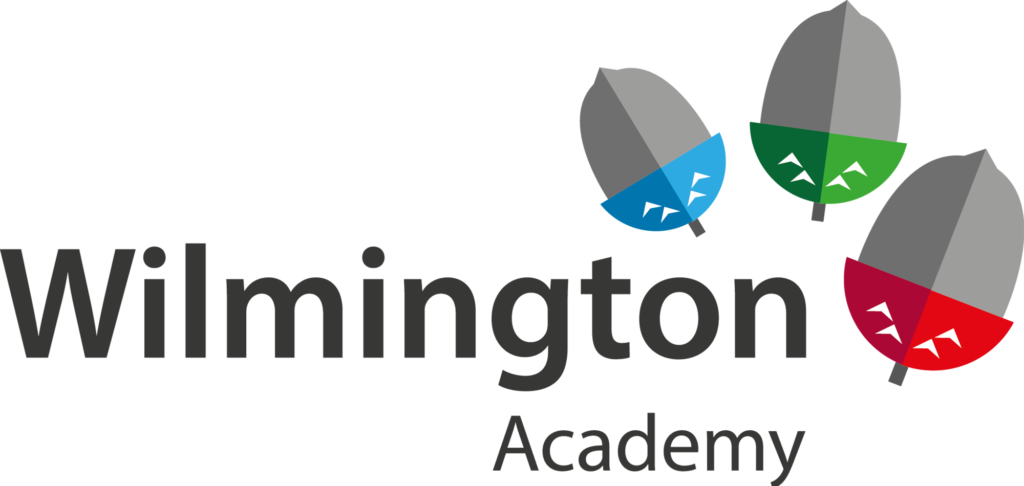The SHARP (School Help and Advice Reporting Page) System
The SHARP system ensures that our students feel confident about coming forward to report problems and incidents.
The SHARP system contains the following benefits:
- It is an online reporting tool for students to use that alerts the Safeguarding Team to problems and issues that individuals are facing.
- It is an educational tool as it contains lots of advice videos on issues such as alcohol, drugs, bullying, health and internet safety.
The SHARP system may be accessed through the link below:
Click here to use the SHARP System
What is Safeguarding?
At Wilmington Academy your health, safety and welfare are really important. We respect each other and know that it is important to be happy and safe in school.
Our Safeguarding personnel (as of September 2024) are as follows:
- DSL Designated Safeguarding Lead: Pete Devlin
- DDSL Deputy Designated Safeguarding Lead: Maxine McLean (Senior DDSL) / Sharron Duff / Roberta Keenan / Sarah West / Belinda Raji / Gina Pepper
- Child Looked After Coordinator: Pete Devlin
- Online Safety Coordinator: Pete Devlin
Key Documents
Wilmington Academy Safeguarding and Child Protection Policy
Wilmington academy student child protection information sheet
Safeguarding at Wilmington Academy
What does Safeguarding look like at Wilmington Academy?
- We know what our roles and responsibilities are to keep you safe.
- We take all allegations, suspicions and concerns seriously and report them properly.
- We talk to other people about any concerns to develop the best way to help you.
- We complete risk assessments to ensure that all potential dangers in activities have been identified.
- We have themed assemblies, lessons and action days where we learn about Safeguarding such as e-safety and anti-bullying.
- We treat everyone fairly with dignity and respect.
What do children need to understand about Safeguarding?
- All adults will listen to what you have to say with an open mind.
- Adults will not ask leading questions so that you have to reveal more details.
- If they are worried about your safety, they might invite another professional to talk to you.
- Adults never stop us from freely talking or sharing about significant events
- Adults will make accurate and specific notes of discussions to make sure that all concerns are recorded.
- Adults will not promise to keep secrets.
- They will explain that they have a responsibility to report what has been said to someone else if they are worried about your safety.
- All adults will immediately tell the Safeguarding team if they are worried about your safety.
What should children do?
- Speak to an adult at school if you are worried about something, it could be a teacher, your form tutor, your SSM or one of the Safeguarding team.
- Be aware that you are not alone and that people will always help you
- Be aware that there are lots of support services available
Where else can I find more information?
- If you are in immediate danger – call the Police
- Advice around Online Safety
- Advice around suicidal thoughts
- Advice around Mental Wellbeing
Sexual Violence and Harassment
- Guidance – Sexual violence and sexual harassment between children in schools and colleges
- Brook.org.uk
- UK Council for Child Internet Safety (UKCCIS)
- The law on sex – Factsheets – FPA
- Sharing nudes and semi-nudes: advice for education settings working with children and young people | GOV.UK
- Sexual consent – The Mix
- Abuse in young people’s relationships | Safe lives
- The Hide Out
- Resources to help identify and engage young people at risk of sexual abuse and exploitation | Barnardo’s
- ItsNotOkay.co.uk
- Friends, relationships and sex | ChildLine
- Preventing Child Sexual Abuse & Keeping Children Safe | NSPCC
- Myths about rape | Rape Crisis
Peer-on-Peer Abuse
- Peer on Peer abuse toolkit
- NSPCC Peer-on-Peer
- Safeguarding Network – Peer on Peer Abuse-
- GOV.UK – Peer on Peer abuse
Healthy and Respectful Relationships
- Healthy Relationships – Childnet
- Everyone deserves a healthy relationship – is yours? | love is respect
- NSPCC Healthy and Unhealthy Relationships
- Contextual Safeguarding Toolkit
Safeguarding Websites and Links
Other Useful Safeguarding Websites that are available to staff and parents of Wilmington Academy.
- Supporting staff Mental Well Being in School
- Guidance on Teacher Standards
- NSPCC whistle blowing website
- Guidance on RSE and Sex Education statutory guidance
- Kent Safeguarding Services Guidance on levels of support
- Contextual Safeguarding Network (Keeping children safe outside of the home e.g. sexual exploitation)
- Preventing and tackling bullying 2020
- Anti Bullying Alliance
- The Diana Award (Anti-Bullying Ambassadors)
- Childline website
- Kidscape (anti-bullying site)
- Sexual violence and sexual harassment between children in schools
- Sexual Behaviour BROOK Traffic Light System
- NSPCC Harmful Sexual Behaviour Advice
- Understanding Parental Responsibility and the Law surrounding ‘Parenting’
- Barnardo’s Website (support for students)
- National information for children of offenders
- County Lines Information
- The Children Society (CSE and CCE advice)
- Preventing Gang and Youth Violence
- National Domestic Violence Helpline
- Operation Encompass Information (domestic violence)
- Homelessness Reduction Help
- National FGM advice website
- Forced Marriage Guidance
- Prevent and Channel Information (extremism or radicalisation prevention)
- Mental Health and Behaviour in Schools
- Young Minds (Mental Health Support)
- Every Mind Matters
- Online Safety Review (MPI)
- Online Internet Safety


